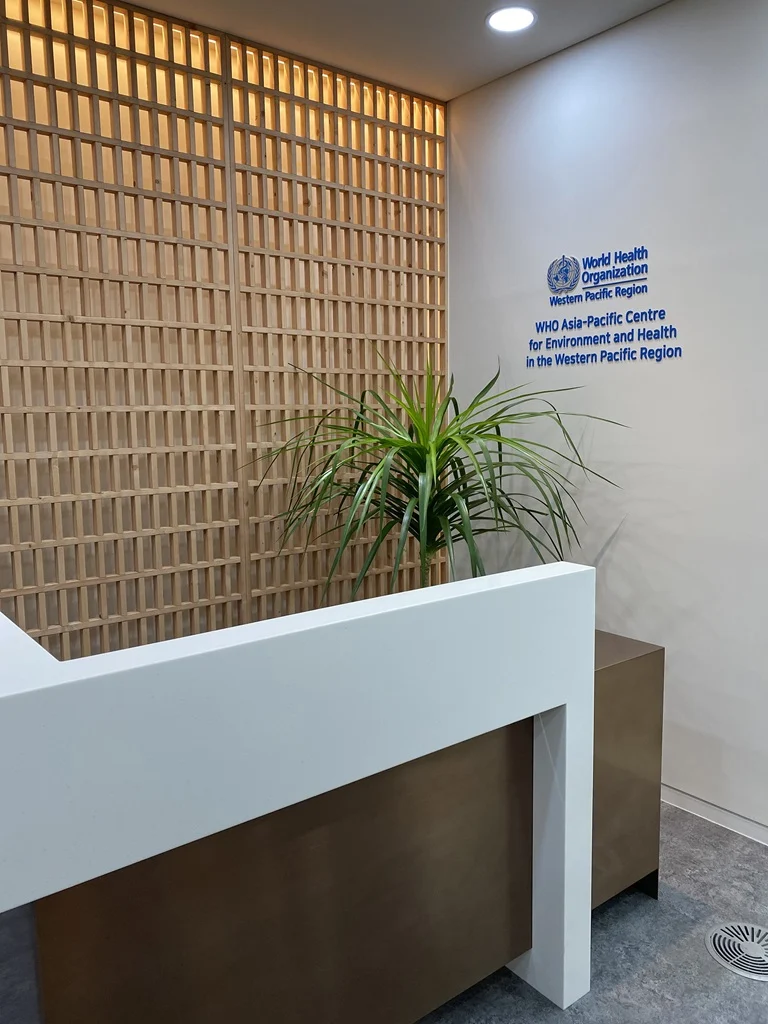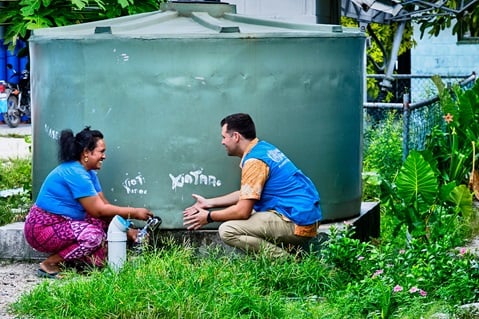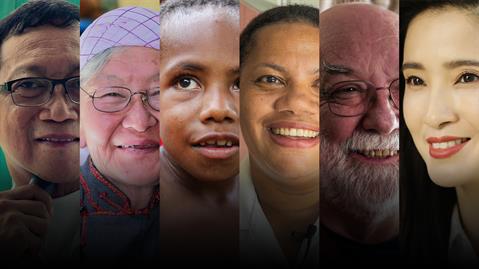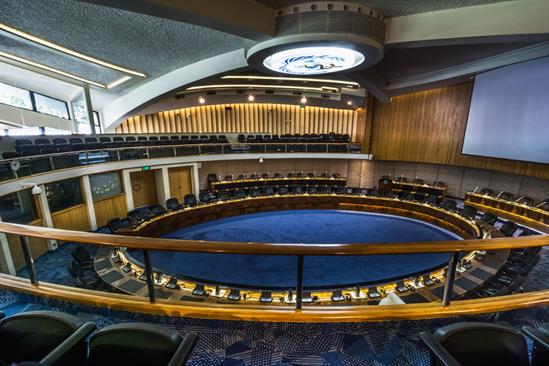The work of the World Health Organization’s Asia-Pacific Centre for Environment and Health in the Western Pacific Region started in October 2019. The Centre, a WHO - WPRO Geographically Dispersed Specialised Office, is hosted by the Republic of Korea in Seoul.
The work of the Centre presently cuts across the following three key areas:
- Air quality, energy and health: addressing the health impact of air pollution and energy policies, focusing on transboundary air pollution such as haze in South-East Asia and dust and sandstorms in North-East Asia, in line with the Sustainable Development Goal (SDG) target of reducing deaths from air pollution by 5% by 2023;
- Climate change and health: helping to build climate-resilient health systems in vulnerable countries and areas, including Pacific islands, to support achievement of the SDG target of reducing deaths from climate-sensitive diseases by 10% by 2023; and
- Water and the living environment: addressing chemical safety, healthy and safe transport, environmental noise, water, sanitation, hygiene and wastewater to reduce the burden of environmental diseases and injuries and increase access to safely-managed drinking water and sanitation.
The Centre is a key instrument to implement WHO Regional Office for the Western Pacific For the Future, which identifies the health impacts of climate and environmental change as a priority. It also supports the objectives of the Western Pacific Regional Framework for Action on Health and Environment on a Changing Planet endorsed by Member States in 2016, as well as the Declarations on Environment and Health of Regional Ministerial Forums held in Jeju in 2010, Kuala Lumpur in 2013 and Manila in 2016.
Contact
WHO Asia-Pacific Centre for Environment and Health in the Western Pacific Region
Seoul Global Centre
38 Jongro
Jongro-gu
Seoul, 110-110 Republic of Korea
Email: wproace@who.int
Contact number: +82 2 739 8730

Our Team
Director of WHO Asia-Pacific Centre for Environment and Health
His current work leads the Centre’s efforts to drive evidence-based policy, foster multisectoral collaboration, and support countries across the Western Pacific Region.
Learn more



